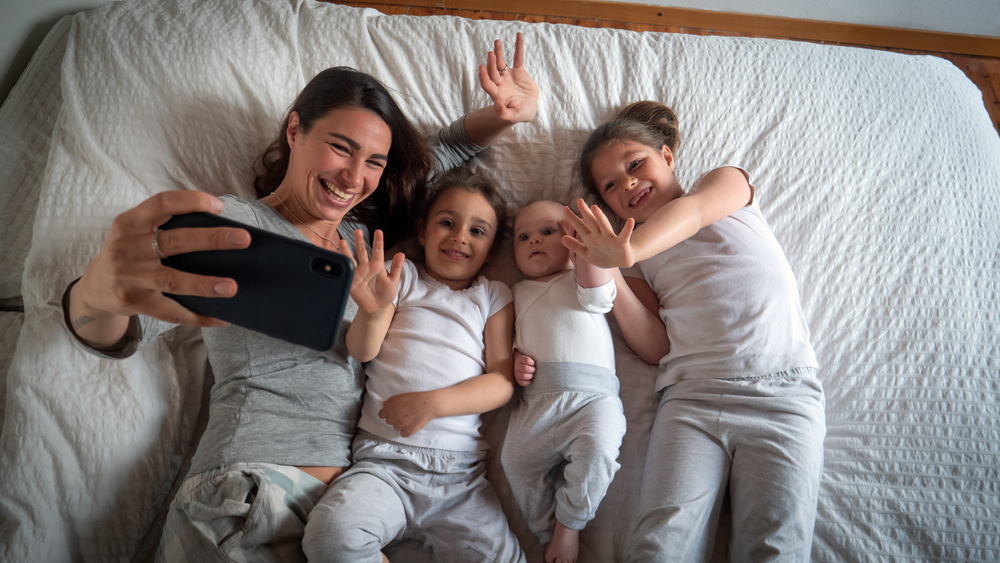Healthy Ways of Coping with Cabin Fever Symptoms
It’s no news that the world is grappling with the COVID-19 pandemic. As part of measures to curb this virus, people have been asked to stay home. No socializing, no outings with the girls or night outs with the boys—it’s enough to drive anyone crazy. So it’s understandable if you are having cabin fever symptoms at this point.
Being able to recognize the symptoms of cabin fever and discovering ways to cope with it will make social distancing easier to deal with. In this article, I explain all the ways you can stay healthy and sane in these difficult times.
Cabin Fever Symptoms And Coping Skills
Although cabin fever is not recognized as a psychological disorder, it is associated with negative emotions and distressing sensations that may prove difficult to manage if not handled properly.
Some experts link cabin fever to claustrophobia, but in general, it is a common reaction from being isolated in a building for a long time.
Symptoms of cabin fever include the following:
- Irritability
- Hopelessness
- Lower level of motivation
- Difficulty concentrating
- Lethargy
- Impatience
- Irregular sleep pattern (this includes sleeplessness or sleepiness)
- Distrust of those around you
- Unending depression or sadness
- Difficulty waking up from sleep
- Food cravings
- Changes in weight
Your natural temperament and personality also play a role in how cabin fever affects you. Some people can better cope with cabin fever by taking on projects to pass the time. But others may find that adding projects makes it harder to manage their day-to-day lives. How do people in the latter category cope? You will discover the answers as you read along.
List of Coping Skills
Since cabin fever is not recognized as a psychological disorder, there is no standard treatment or cure. However, medical professionals recognize that the symptoms are real. How you cope with cabin fever largely depends on your situation and the reason you are isolating in the first place.
By discovering meaningful ways to engage your body and occupy your mind, you will be able to cope with the situation better. The following ideas can help you cope with cabin fever.
- Set Goals
- Keep Learning
- Take Advantage Of Videoconferencing
- Exercise As A Way Of Curbing Cabin Fever Symptoms
- Commune With Nature
Set Goals
When you are stuck at home, whether it’s due to a pandemic or just bad weather, you are more likely to while away your time and achieve nothing of importance at the end. To beat this, the best thing to do would be to set goals that are specific and time bound. An example of a goal could be home cleaning: you can decide to clean your garage by the end of the week. Or you could decide to finish that book you have been writing within the next six months.
You could also set goals that focus on mental or physical health. One common symptom or side effect of cabin fever is binge eating. If this has been a pitfall for you during the pandemic, you could set goals around healthful eating practices that will help you come out of quarantine feeling more physically fit.

Set daily and weekly goals; track your progress at the end of each day and week. When setting goals, it’s important to aim for reasonable targets. Then, after completing each task, reward yourself for a job well done.
Keep Learning
Since you are observing social distance, going out at this time to buy a book may be difficult. But you don’t need to leave the comfort of your home to find your next read since you can find almost any book online. Reading makes you smarter and helps you think. It leads to creativity and imagination.

That’s not all; reading also improves your memory, reduces stress, expands your vocabulary, and of course gives you an all-round deeper knowledge. If you have to be home, you may as well take this time to read as many books as possible. Take advantage of the situation; extensive reading will certainly have a lasting benefit when you are able to get back to business as usual.
And if you’re fighting cabin fever symptoms by studying, don’t forget about nootropic supplements. They may help with memory and focus as you dive into your studies.
Take Advantage of Videoconferencing
Yes, at this time you can’t hang out with your friends, but you can still “hang out” on social media. With the use of real-time video streaming apps such as FaceTime, Skype, or Zoom you can chat with your family, colleagues, friends, and loved ones.

Maintaining a social life will make you feel close to those you are far away from and it can dispel the loneliness you may be feeling. You can connect with others that are facing the same challenges with you, and through this means you can offer support and encouragement to one another.
Exercise as a Way of Curbing Cabin Fever Symptoms
Research has shown that exercising helps to get rid of anxiety and stress. It lowers your body’s stress hormones (including cortisol) and enables your brain to release endorphins, which are neurochemicals needed to boost your mood and make you feel better.

You need not go to the gym to work out. There are lots of exercises to do at home, including:
- Planks
- Lunges
- Burpees
- Squats
- Pushups
In addition to these, there are structured workout programs on YouTube and exercise apps that can be of help.
Commune With Nature
If you are feeling stir crazy from being cooped up inside for too long, one of the effective ways to shake off this feeling is to spend time outdoors. Research shows that time spent with nature is good for mental and physical health. It not only improves your cognitive function, but it also makes you feel better and happier, boosts feelings of wellness, and reduces stress.

It could be something as simple as sitting and gazing at the stars, gardening, or just taking a walk around your home. It can do wonders for your mood.
Bottom Line
Man is indeed a social animal; this is why staying indoors for an extended period can lead to cabin fever symptoms. However, finding ways to combat these feelings of melancholy will help to alleviate the restlessness that you feel.
Go ahead and try out these tips—your inner self will thank you for it.








